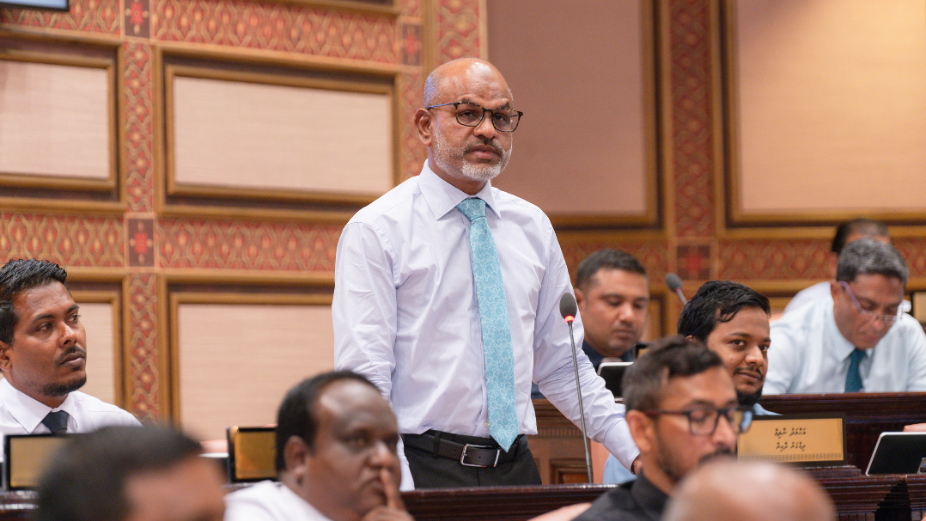
Deputy Speaker of the Parliament, Ahmed Nazim, has highlighted the critical need to review the pricing of fish products to facilitate timely payments to fishermen. His statement was made in response to ongoing concerns about pending payments, an issue brought to light by Parliamentarian Ahmed Didi. Didi called on the government to address the protests by fishermen over delayed payments from the Maldives Industrial Fisheries Company Limited (MIFCO).
During the parliamentary discussion, Deputy Speaker Nazim pointed out that MIFCO is currently selling fish at unprofitable rates, which hinders the company’s ability to purchase fish from fishermen at reasonable prices. He explained that this situation was inherited by the current administration and noted that the majority of outstanding sums have already been paid to the fishermen. Nazim urged all stakeholders to understand the broader economic context, emphasising that reasonable fish pricing is essential for the sustainability of the fisheries sector.
Parliamentarian Ahmed Saleem also spoke on the issue, asserting that no previous government has managed to find a sustainable solution to the challenges faced by fishermen. Saleem noted that the current administration is working diligently to address these issues and has made significant progress in making payments without resorting to printing money. He expressed confidence that the government’s commitments to the fishermen would be fulfilled by the end of its tenure.
The matter was proposed to the parliament with a call for the government to find a sustainable solution and to ensure that all pending payments are completed within 48 hours, as pledged.
The fisheries sector is a cornerstone of the Maldivian economy, contributing significantly to employment and export revenues. Delays in payments to fishermen can have widespread economic repercussions, affecting the livelihoods of fishing communities and undermining confidence in the sector. Ensuring timely payments through fair pricing mechanisms can stabilise the industry, promote economic growth, and enhance the overall economic resilience of the Maldives.
MIFCO’s ability to purchase fish at reasonable prices and sell them profitably is crucial for maintaining a stable supply chain and supporting the financial stability of fishermen. By addressing the pricing issues and ensuring expeditious payments, the government can help secure the economic well-being of thousands of Maldivian families dependent on the fishing industry.
An emerging viewpoint among public and industry experts is the potential benefit of privatising the fisheries sector to foster competition and efficiency. Privatization could encourage multiple players to enter the market, thereby enhancing competitive pricing, improving service delivery, and reducing the monopolistic influence of state-owned entities like MIFCO. This shift could drive innovation and better pricing strategies, ensuring that fishermen receive fair compensation promptly.
Encouraging private sector involvement in the fisheries industry could lead to a more dynamic market environment where supply and demand dictate prices, potentially leading to more sustainable economic outcomes. This approach aligns with broader economic reforms aimed at reducing state intervention and promoting private enterprise, ultimately benefiting the Maldivian economy by creating a more resilient and competitive fisheries sector.
The discussions in parliament highlights the urgent need for policy interventions that support fair pricing, financial sustainability, and increased competition within the fisheries sector. Such measures are essential for aligning with broader economic goals and contributing to the sustainable development of the Maldives.












